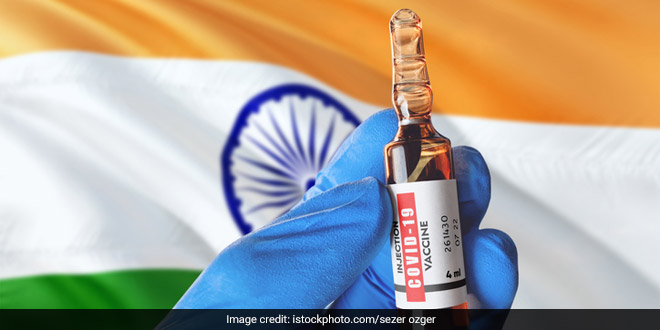Highlights
- COVID Vaccine has 2 doses, immunity kicks in 2 weeks of first dose: Expert
- Not enough data on how the vaccine will stall the pandemic: Expert
- Continue to follow precautions like physical distance and masks: Expert
New Delhi: World’s second-worst hit country with COVID-19, India continues to roll out its vaccination drive at a fast pace. On February 3, the Ministry of Health and Family Welfare (MoHFW) claimed that India has become the fastest country in the world to reach the 4 million COVID-19 vaccination mark in 18 days. However, many people who are awaiting their vaccine dose have questions like when does the immunity kick in, and how long will the protection last? WHO and Dr Katherine O’Brien, a paediatric infectious disease physician, and Vaccinologist, answered some of these frequently asked questions about the COVID-19 vaccine.
When it comes to the immunity that comes with the vaccine, according to Dr O’Brien, the COVID vaccines are two-dose vaccines and after the first dose, a good immune response kicks in within about two weeks of this dose.
Also Read: Russia’s COVID-19 Vaccine 91.6% Effective, Soon To Apply For Emergency Use In India
And it’s really the second dose that then boosts that immune response and we see immunity get even stronger after that second dose, within a shorter period of time after the second dose. However, we don’t know how long immunity lasts from the vaccines, yet. We’re following people who have received vaccinations to find out whether or not their immune response is durable over time and the length of time for which they’re protected against disease. So we’re really going to have to wait for time to pass to see just how long these vaccines last, Dr O’Brien explained.
Talking about the possibility of catching and transmitting COVID-19 after being vaccinated, Dr Katherine O’Brien said that the clinical trials demonstrated that these vaccines protect people against COVID.
What we don’t know yet from the clinical trials is whether or not the vaccines also protect people from just getting infected with the SARS-CoV-2 virus and whether or not it protects against transmitting to somebody else. So, this is a really important part of our understanding about what these vaccines do.
Also Read: Vaccine Explainer: How Does Immunisation Protect Against A Disease?
Precautions such as using masks and social distancing act as a barrier in the transmission of coronavirus. With COVID-19 vaccines being administered, people are eager to know how long do they need to follow precautions. According to Dr Katherine O’Brien, while the experts are still learning about what these vaccines could do, the precautions should be followed to protect oneself and others.
Right now, we’re in a situation where there’s still very broad transmission in many countries, the transmission remains out of control. And so for how long we need to continue these precautions is really going to depend on what communities and countries can do to really crush this virus, to crush the transmission. And in that way, the vaccines can do their best job at preventing disease. But remember that we don’t actually have the evidence yet for using the vaccine in some age groups. We don’t have the evidence for use of vaccines in children, for instance. So for the time being, those age groups are going to continue to be at risk of both disease and infection and being able to transmit to other people, she said.
Furthermore, the second reason, according to Dr O’Brein, is that the vaccines are still limited in supply and therefore we don’t have enough vaccine out in the community to protect everybody.
Those are the reasons why we have to continue the precautions, especially the masking, the physical distancing, the hand washing and not gathering in big groups. For how long we need to continue those interventions? Time is going to tell. Once we get broad vaccination coverage in the community, when we know more about what the vaccine can actually do to prevent infection, we can slowly start taking our foot off the pedal of these other interventions and make sure that the transmission, doesn’t start to escalate again, Dr O’Brein signed off.
NDTV – Dettol Banega Swasth India campaign is an extension of the five-year-old Banega Swachh India initiative helmed by Campaign Ambassador Amitabh Bachchan. It aims to spread awareness about critical health issues facing the country. In wake of the current COVID-19 pandemic, the need for WASH (Water, Sanitation and Hygiene) is reaffirmed as handwashing is one of the ways to prevent Coronavirus infection and other diseases. The campaign highlights the importance of nutrition and healthcare for women and children to prevent maternal and child mortality, fight malnutrition, stunting, wasting, anaemia and disease prevention through vaccines. Importance of programmes like Public Distribution System (PDS), Mid-day Meal Scheme, POSHAN Abhiyan and the role of Aganwadis and ASHA workers are also covered. Only a Swachh or clean India where toilets are used and open defecation free (ODF) status achieved as part of the Swachh Bharat Abhiyan launched by Prime Minister Narendra Modi in 2014, can eradicate diseases like diahorrea and become a Swasth or healthy India. The campaign will continue to cover issues like air pollution, waste management, plastic ban, manual scavenging and sanitation workers and menstrual hygiene.
[corona_data_new]





























